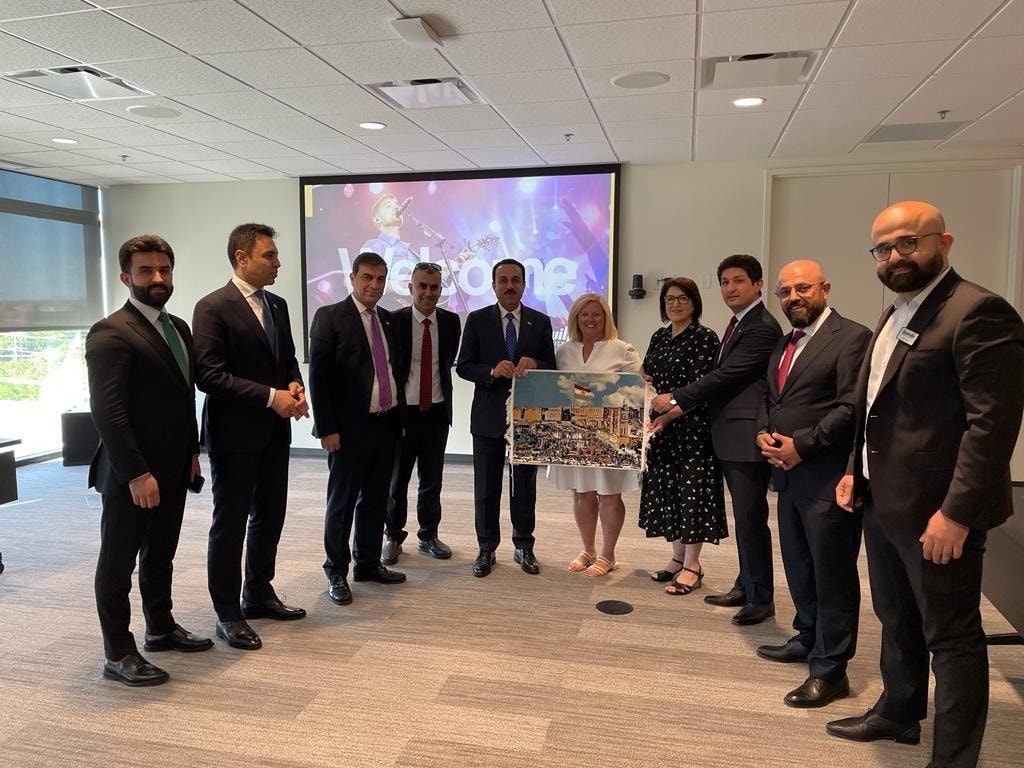
Governor Omed Khoshnaw and the rest of the Erbil delegation arriving in Nashville Tennessee on May 16, 2022. Photo: Rudaw
ERBIL, Kurdistan Region - A delegation from Erbil province headed by Governor Omed Khoshnaw arrived in Nashville on Monday, with the purpose of creating a ‘sisterhood’ status between the two cities, making the Kurdistan Region’s capital the first city in the Middle East to pursue such relations with the capital of Tennessee.
The delegation, which also included the mayor of central Erbil district Nabaz Abdulhamid, was received by the board of directors of the Sisters Cities of Nashville network, who welcomed the prospect of reaching what they termed ‘sisterly relations’ with Erbil.
“Nashville has a large Kurdish population, and we’ve been impressed by the culture they have brought to our city and we think that there is certainly an interesting possibility for a relationship that could broaden that experience for other people in Nashville who are not from Kurdistan,” Barry Kolar, president of the organization, told Rudaw’s Diyar Kurda on Monday.

Founded by US President Dwight D. Eisenhower in 1956, Sister Cities International is a citizen diplomacy network that seeks to create “relationships based on cultural, educational, information and trade exchanges,” as well as “lifelong friendships.”
Nashville is home to the largest Kurdish population in the United States, with an estimated population of around 15 thousand Kurds in the city. A neighborhood south of Tennessee is nicknamed “Little Kurdistan” due to its large Kurdish community.
The Erbil delegation is expected to stay in Nashville and conduct further meetings with the board until Wednesday, whereupon they are expected to make a trip to Washington DC.
“The similarities between the two cities were discussed. During our visit we will meet with local officials, organizations, lawmen, merchants, and companies. It will be an eventful visit, and we will extend an invitation to the officials of the city to visit Erbil,” Abdulhamid said on Monday.







Comments
Rudaw moderates all comments submitted on our website. We welcome comments which are relevant to the article and encourage further discussion about the issues that matter to you. We also welcome constructive criticism about Rudaw.
To be approved for publication, however, your comments must meet our community guidelines.
We will not tolerate the following: profanity, threats, personal attacks, vulgarity, abuse (such as sexism, racism, homophobia or xenophobia), or commercial or personal promotion.
Comments that do not meet our guidelines will be rejected. Comments are not edited – they are either approved or rejected.
Post a comment